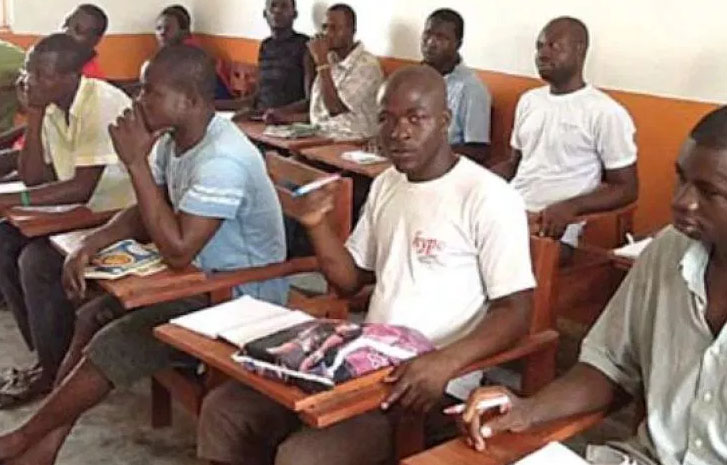The Nigeria Correctional Service announced on Thursday that over 1,000 inmates are currently pursuing university degrees, while six are studying for PhD.
According to the PUNCH, the NCoS spokesperson Umar Abubakar made this statement at the Strategic Communications Interagency Policy Committee’s monthly press briefing in Abuja.
He also noted that the federal government has increased the feeding allowance for prison inmates by 50%, responding to rising food costs and recent complaints about inadequate feeding in the nation’s correctional facilities.
This development comes on the heels of a viral video showing inmates at a correctional center in Calabar, Cross River State, protesting against poor feeding conditions while emphasizing that the video does not accurately reflect the service’s efforts to reform and rehabilitate inmates.
“The viral video is not a true representation of the Nigeria Correctional Service,” Abubakar stated
“Significant progress has been made in reforming those in our custody since the service’s rebranding. The Federal Government has responded to the rising cost of food by reviewing the feeding allowance for inmates, marking this as the first phase of the review.”
In addition to the feeding allowance increase, Abubakar highlighted the NCoS’s commitment to providing a conducive environment for inmates’ reformation and education.
He revealed that over 1,000 inmates are currently pursuing university degrees, with 282 enrolled in diploma and master’s programs, and six inmates studying for their PhDs. Three of these PhD students are reportedly in the process of writing their theses.
“Our efforts are focused on ensuring public safety through reformatory activities,” Abubakar explained.
“By offering educational opportunities, we aim to change the psyche and behavior of our inmates, equipping them for successful reintegration into society. The care we provide within our custodial centers has created a serene environment that supports skill acquisition and academic growth.”
The NCoS reiterated its commitment to its mandate of reformation and rehabilitation, stressing that the ongoing improvements in inmates’ welfare and education are critical to achieving long-term public safety and reducing recidivism.











